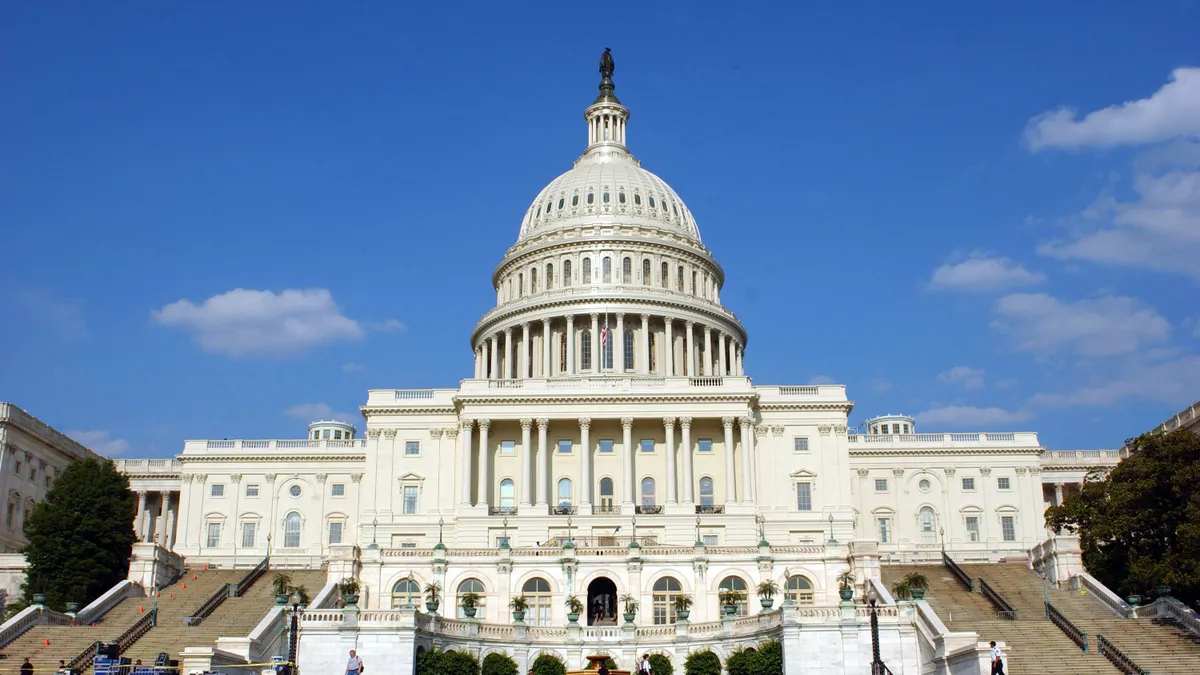In a historic move, the Senate Banking Committee on Wednesday approved a bill that would make it easier for banks to serve state-legal cannabis businesses, positioning the legislation for a potential vote in front of the full Senate.
Committee members voted 14-9 to pass the Secure And Fair Enforcement Regulation Banking Act, a revised version of the SAFE Banking Act that lawmakers say addresses social equity concerns and government overreach, in addition to providing protections for banks that serve marijuana-related businesses.
“This has been a challenge. It's been quite a journey,” Committee Chairman Sherrod Brown, D-OH, said on Wednesday. “Regardless about how you feel about states’ efforts to legalize marijuana, this bipartisan bill is necessary. It will make it safer for legal cannabis businesses and service providers to operate, to protect their workers first and foremost and to operate in their communities.”
The Senate panel’s passage of the legislation comes 10 years after the cannabis banking bill was first introduced. The SAFE Banking Act has passed in the House seven times, but, until Wednesday, had never before made it to a markup hearing in the Senate.
While Wednesday’s vote advances the landmark legislation to the Senate floor, its future remains overshadowed by a looming government shutdown, as lawmakers battle over a federal spending plan.
The bill’s companion legislation in the House also faces uncertainty in the Republican-controlled chamber.
“I think it probably passes the banking committee, but I think it doesn’t go anywhere in the House,” Ian Katz, an analyst with Capital Alpha Partners who covers banking and financials, told NBC.
“Republicans seem to be souring on it,” he said.
Meanwhile, industry stakeholders applauded SAFER Banking’s advancement to the full Senate.
“This urgently needed, bipartisan legislation will resolve the ongoing conflict between state and federal law so that banks can serve state-authorized cannabis and cannabis-related businesses while enhancing public safety, tax collection and financial transparency,” American Bankers Association President and CEO Rob Nichols said in a statement on Wednesday. “The status quo is simply untenable for consumers, small businesses and banks operating in states where cannabis is legal. Based on today’s bipartisan vote, we urge the full Senate to promptly consider this bill.”
The bill will likely spur more financial institutions to enter the space, Kevin Hart, founder and CEO of Green Check, a cannabis banking technology provider, told Banking Dive.
“While the proposed language in the legislation is far from perfect, it would represent real progress if it is adopted,” Hart said. “I’m confident that, if approved, the bill will serve as a catalyst for more banks and credit unions to serve the legal cannabis industry.”
Section 10
While the bill, which is sponsored by Sens. Jeff Merkley, D-OR, and Steve Daines R-MT, has received bipartisan support, Section 10 has divided some Republicans and Democrats, calling into question whether the legislation had a chance of passing.
Brown, on Wednesday, said the committee was able to find language that addresses both Republicans’ and Democrats’ concerns about Section 10, a portion of the text that addresses requirements for deposit account termination requests and orders.
Sen. Mike Crapo, R-ID, however, raised concerns with the final version of Section 10, arguing the text “doesn’t get the job done” and creates “a loophole that you could pretty much drive any kind of truck through.”
Crapo proposed lawmakers replace Section 10 with language that states federal regulators cannot force, encourage or pressure a financial entity to refuse to provide service to a lawful entity.
“Reputational risk, which is what this has come to be called in today's nomenclature, is something that financial regulators should not be able to utilize in order to de-bank or refuse to provide service to any company in any industry,” he said. “The language I'm suggesting just makes it crystal clear that reputational risk cannot be deemed to constitute an unsafe or unsound practice.”
The committee, however, rejected Crapo’s amendment.
The committee also rejected a proposed amendment by Sen. Raphael Warnock D-GA, who said he was disappointed with the bill’s failure to adequately address social equity issues.
“I would support all of the provisions and reforms in this legislation if they were paired with broader cannabis reforms that substantively address the issue of restorative justice. This bill does not do that,” he said.
Warnock’s proposal would have established a five-year sunset on the bill’s policies “unless we demonstrate that they have actually made life better for the millions of families and the communities being harmed right now by the war on drugs.”





















